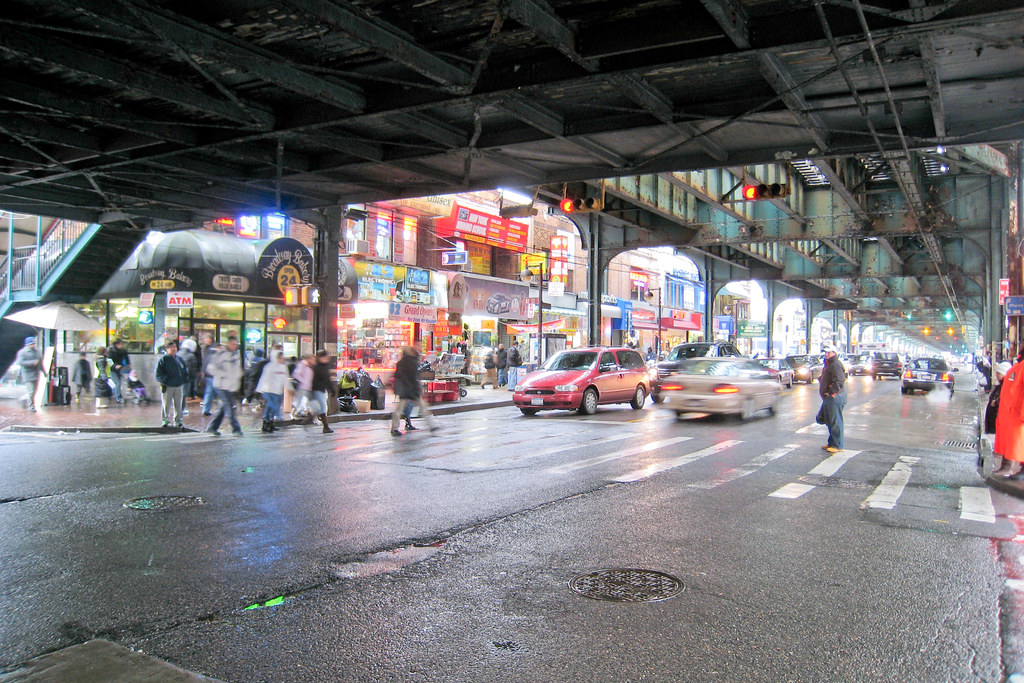Queens small business owners and vendors impacted by COVID-19 will receive support from a new program that is slated to launch in early January.
Queens Borough President Donovan Richards and James Patchett, president of the New York City Economic Development Corporation (NYCEDC), are partnering with several community organizations for the Queens Small Business Grant Fund that aims to provide a lifeline for businesses struggling through the pandemic.
The participating partners include Accompany Capital, Ascendus, BOC Capital, Greater Jamaica Development Corporation, Pursuit, Renaissance EDC and the Queens Chamber of Commerce. The new grant program is made possible through a generous $17.5 million donation from the Steven and Alexandra Cohen Foundation Inc., a nonprofit organization that is committed to inspiring philanthropy and community service.
“This is a real shot in the arm for businesses during a period when we’re seeing people struggling to pay their rent, have a meal at home, provide food for their kids, and people waiting on pantry lines,” Richards said. “This is a really good start and I am proud to partner with NYCEDC on such a great program.”
The program aims to support businesses that are minority-owned or those located in a low- to moderate- income community, and communities hit hard by COVID-19. According to NYCEDC, $15 million will be allocated for small businesses, each of which may receive up to $20,000 to support operational expenses. An additional $2.5 million will be reserved for further small business support in spring.
Having done a tour in southeast Queens, East Elmhurst and Astoria, meeting with dozens of small business owners, Richards said they’re expecting to conduct more tours through business corridors across the borough.
“You hear the same common theme: we are holding on by the margins, need rental assistance and there have been staff layoffs,” Richards said. “There is no borough hit harder than Queens during the pandemic, and we’re not only feeling the impact health-wise but also in our business community.”
According to Richards, although the Paycheck Protection Program (PPP) provided a loan, people were cautiously optimistic about the new program and didn’t know enough about it.
The PPP is a $349 billion federal loan under the Coronavirus Aid, Relief, and Economic Security Act passed in March. It was designed to provide a direct incentive for small businesses to keep their workers on the payroll. However, during the first rollout in April, many small businesses were bypassed as larger corporations received the loan. The program was closed in August.
After eight months, Congress on Monday, Dec. 21, voted to approve a long-sought $900 billion COVID stimulus package that provides relief for small businesses. The package includes more than $284 billion for first and second forgivable PPP loans, expanded PPP eligibility for nonprofit organizations and news outlets, and modifications to the program to serve small businesses, nonprofits and independent restaurants.
In the meantime, the Queens Small Business Grant comes at a time when businesses are hanging on by a thread, as indoor dining is banned in New York City to slow the spread of COVID-19.
The grant is “no-strings attached dollars” for businesses in low-income communities who need it the most to survive during the winter season, Patchett said.
“We know this winter will be really hard and this is about making sure we can save as many businesses as we can,” Patchett said. “The next few months have determined whether businesses will make it or not through January to March.”
Community organizations based in different parts of the borough will provide technical assistance to the grant applicants to ensure they receive the funds. According to Patchett, they’re hopeful that the program will help a lot of businesses get through a very difficult winter.
“We’re really thrilled that we have the opportunity to provide this lifeline to Queens businesses, particularly to those in the neighborhoods and populations hardest hit by COVID,” Patchett said.
The program, Richards said, prioritizes the needs of the communities often left behind during a critical time, as they work to rebuild the borough’s economy.
“This ensures that we have an antidote to make sure we’re never back here again. We’re rebuilding back smart and assisting communities that really would suffer from the most blight perhaps, who really have much more of the population of low wage workers and getting them back on their feet sooner or later,” Richards said. “This is what the government should be doing, to keep our businesses afloat.”





































